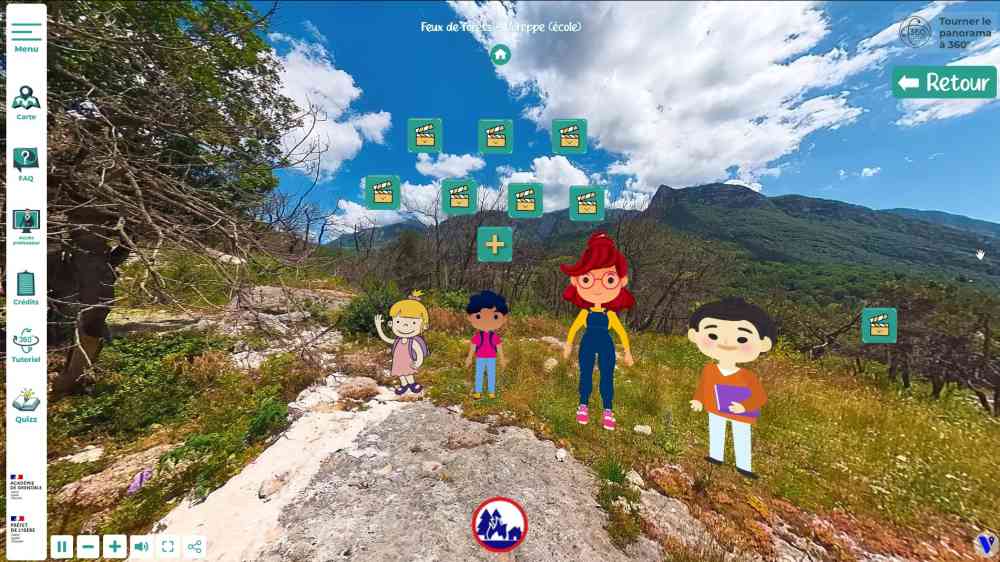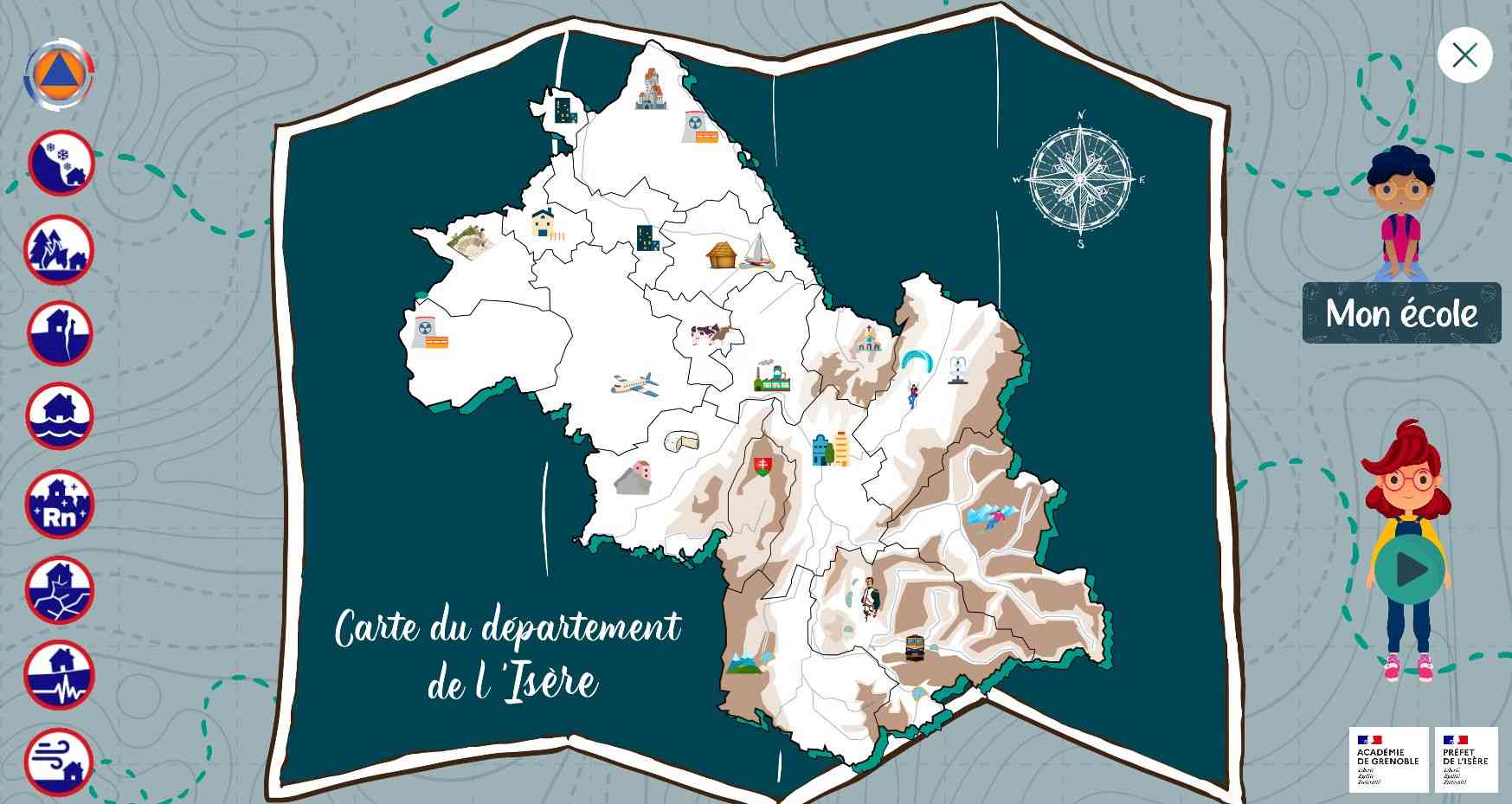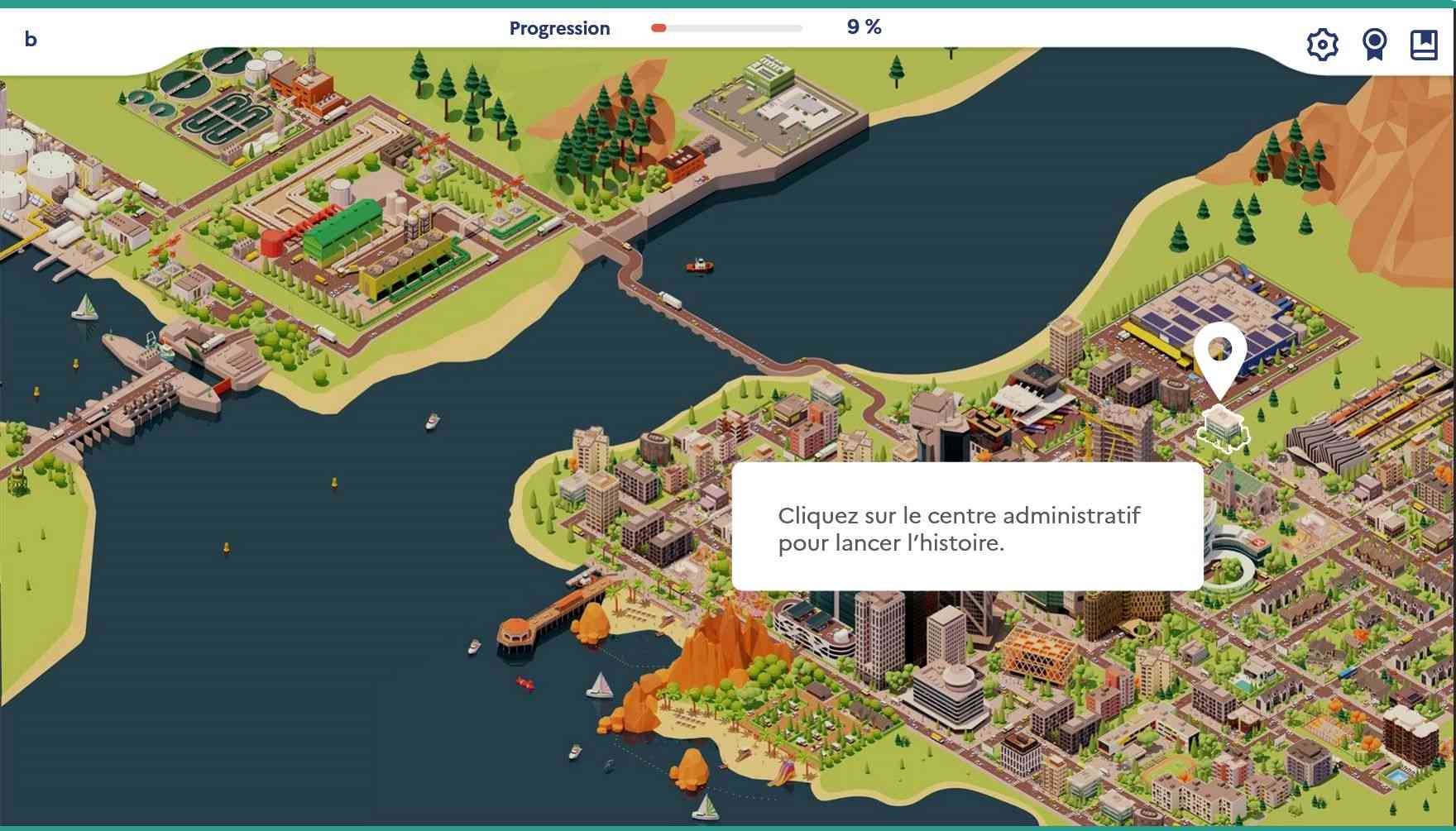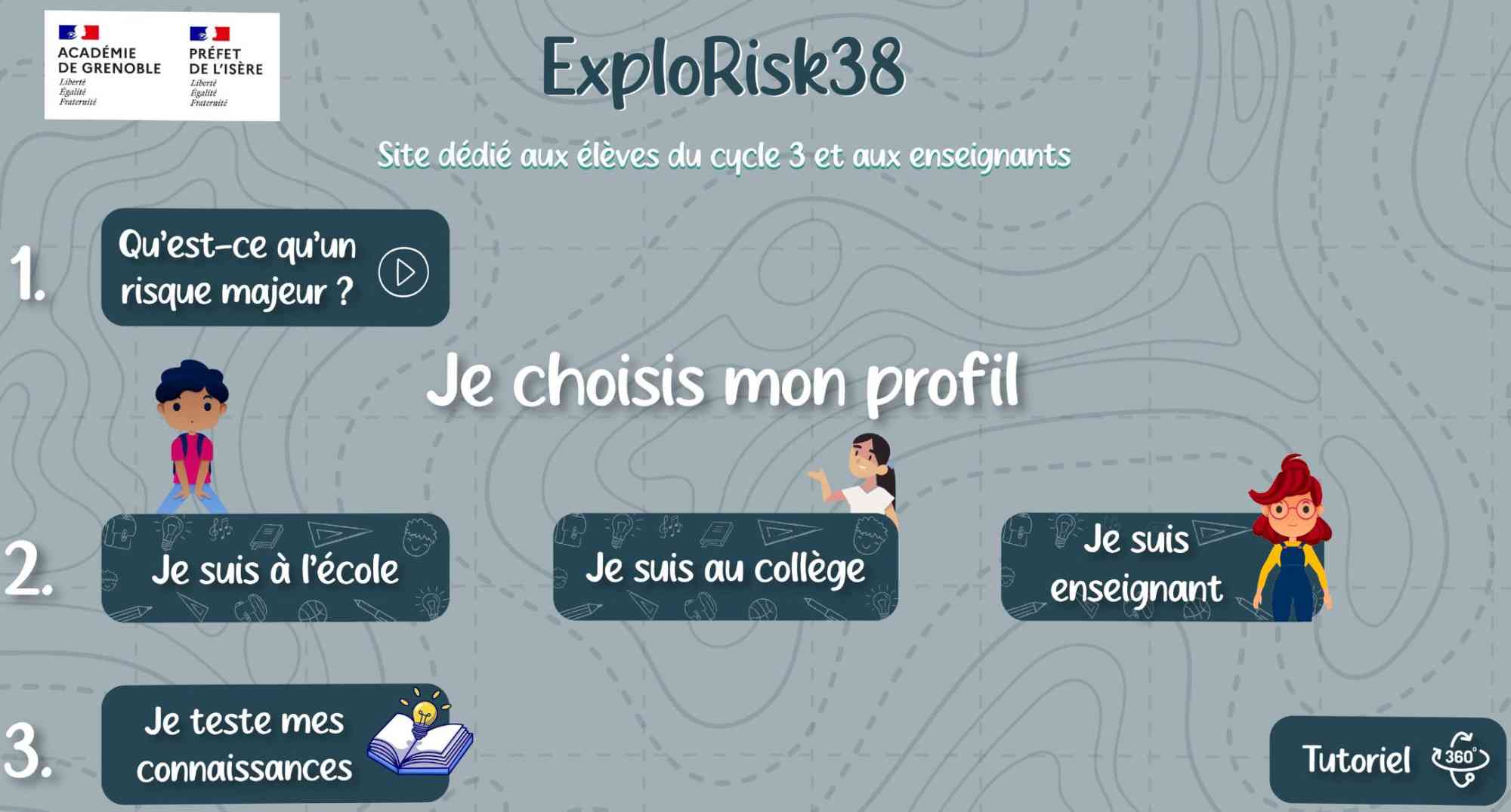Gamifying risk awareness: How a French region is teaching disaster preparedness

The Isère department, located in southeastern France, is characterized by a diverse geography, ranging from the flatlands near the Rhône Valley to the towering Alpine massifs of Chartreuse, Vercors, Belledonne, and Oisans.
This variability in terrain makes the department particularly vulnerable to a wide range of natural hazards, including floods, landslides, earthquakes, and avalanches. Over the past century, demographic growth and urban expansion have increased exposure to these risks, emphasizing the need for proactive disaster risk education.

"Explorisk38" - reducing risks through educational play
Recognizing this necessity, the Prefecture of Isère and the Rectorate of Grenoble have collaborated on an innovative project to strengthen risk awareness among school students. This project uses an immersive educational website, "Explorisk38" - 38 being the geographic code assigned to Isère - to instil a culture of risk awareness in young learners, encouraging their active participation in disaster preparedness.
Explorisk38 is a very rich teaching tool which captivates students through its intuitive interface.
Carole Janin, school director and teacher
Education plays a pivotal role in reducing disaster risks. Traditional methods, such as lectures and printed materials, are often insufficient to engage students fully or help them internalize critical safety information. Inspired by digital learning advancements, we opted for a virtual 360-degree environment where students can explore risk scenarios in familiar settings. This gamified learning model enhances engagement as well as fostering deeper retention of safety measures.

Intuitive and interactive experience
The project is inspired by the need to make disaster preparedness an intuitive and interactive experience for children. By simulating real-life emergencies within a controlled digital space, the exercises empower students to practice appropriate responses, helping them develop life-saving reflexes in the face of potential disasters.
The program aligns with France's national curriculum for cycle 3 students (aged between 9 and 12), seamlessly integrating subjects such as geography, science, and civic education.
Carole Janin, a school director and teacher, has found ExploRisk38 to be a valuable teaching tool in her classroom. Students "learn by navigating and taking in all the data. The data is rich and varied, enabling various teaching methods". Although teachers need to plan their students' navigation scenario through the tool to align with their learning objectives, Carole highlights its richness and ability to engage students. With its intuitive interface, ExploRisk38 enables students to actively explore information, enhancing their understanding through interactive learning.
"Explorisk38" introduces students to a virtual map of Isère where they can explore different locations (such as schools, riverbanks or mountain trails) and witness hazard scenarios unfolding in real-time. Players interact with characters, analyse risk factors, and make decisions to mitigate dangers. Throughout the journey, embedded videos, and quizzes reinforce key preparedness strategies.
The website initially focuses on natural hazards, with an expansion to include industrial risks.

Adding to an educational toolkit on risk
While this immersive tool is a groundbreaking initiative, it is complemented by other educational efforts in Isère, in regards to the National Resilience Day call for projects (on 13 October, the International Day for Disaster Risk Reduction) such as:
- School emergency drills, regularly conducted to train students in evacuation procedures.
- Workshops with risk experts from civil protection services who engage with students through hands-on demonstrations.
- Outdoor learning programs, with school field trips to high-risk areas (such as flood-prone zones and mountain regions) to study risk mitigation structures.
Since 2023 Isère has led the way in establishing risk awareness projects amongst the Departments of France, gathering initiatives made by local municipalities, associations, schools, companies, individuals, and other entities.
The "Explorisk38" website was developed with the collaboration of the Institut des Risques Majeurs (IRMa), the Association Française pour la Prévention des Catastrophes Naturelles et Technologiques (AFPCNT), the Institut Français des Formateurs Risques Majeurs et Protection de l'Environnement (IFFO-RME), Acthys Diffusion, the Institut National du Service Public (INSP), and other partners.
Valentin Forand is a humanitarian and an expert in risk management and territorial resilience. He leads the "Risk culture" Mission under the Prefect of Isère. In this role, he supports local authorities in crisis management, particularly in drafting Municipal and Intermunicipal Safeguard Plans (PCS/PICS) and managing natural and industrial risks. His mission is to enhance municipalities' preparedness for crises by integrating a proactive and cross-sectoral approach to risk management. He is also responsible for raising public awareness (including schools and the general public) about major risks and promoting civic engagement.
Luc François is a technical advisor and coordinator of major risks for the Rector of the Grenoble Academy. His expertise covers both operational and educational fields: operational in terms of the animation of crisis management cells in the event of a major event and educational with regards to the the promotion and impetus of risk culture education actions for students and teachers of the Grenoble Academy.